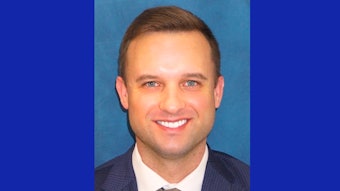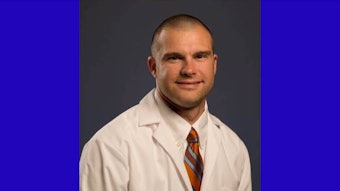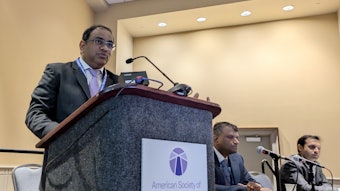Is artificial intelligence the perfect fit?
Shaping how AI will impact the future of anesthesiology.

There is no doubt that artificial intelligence (AI) will play some role in the future of medicine. The question all specialties, including anesthesiology, must address is what that role will be and how the specialty itself will play a role in shaping that future.
Ronald Pearl, MD, PhD, Professor of Anesthesiology at Stanford University School of Medicine in Stanford, California, said that AI advances in medicine have resulted from increased computing power and the development of new statistical techniques. But its success — or failure — depends on how the specialty decides to use it.
“Without question, AI will impact the practice of anesthesiology, especially as it integrates with advanced monitoring modalities and expanded databases,” he said. “The success of AI will depend upon big data with increased quantity of data, an increased rate of new data acquisition, and an increased variety of data, including hemodynamics, laboratory data, genomics, response to interventions, and more.”
The 2024 session, “Will Artificial Intelligence Transform the Practice of Anesthesiology?” attempted to answer that question and provide a broader overview of where AI and anesthesiology might come together in the OR and beyond.
In fact, AI is already in use in many devices in the OR, including depth-of-anesthesia EEG monitoring and hypotension prediction. It is also being used to optimize patient, surgeon, and anesthesiologist scheduling. But Dr. Pearl said he doesn’t see the uses stopping there.
“AI is already rapidly expanding to prediction of individual patient outcomes and to real-time decision support to guide clinical care,” he said. “In concept, AI can review the patient’s entire medical records, create the optimal anesthetic plan, titrate medications based on data from monitors and cameras, and prescribe specific interventions when unexpected adverse events do occur.”
Hannah Lonsdale, MBChB, Assistant Professor of Pediatric Anesthesiology at Vanderbilt University Medical Center in Nashville, Tennessee, said one significant application for AI in anesthesiology is the prediction and risk stratification of adverse events.
“AI excels at processing vast amounts of patient data from electronic health records, external data sources, and real-time monitoring in operating rooms and intensive care units,” she said. “The average human brain can only hold around seven chunks of information in short-term memory at any given time. AI can therefore help to highlight the most urgent and important information for the anesthesiologist to see at any given point in their workflow. Additionally, AI can use the vast amount of information it processes to make nonlinear connections and see trends. AI models can use these trends to predict a patient’s outcome and risk of complications and can be programmed to make suggestions to support the clinician’s decision-making based on these predictions.”
In spite of AI’s tremendous promise, Dr. Pearl said anesthesiology as a specialty needs to use caution and take the lead in order to make sure it is used properly going forward.
“Current AI is not infallible,” he cautioned. “It often has limitations in new settings and new patients and cannot replace the personal patient-provider relationship that is so important in the perioperative setting.”











